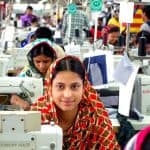Made in Africa, Sold Around the World: An African E-Commerce Innovator Connects Women Creators with Global Customers
Sub-Saharan Africa (SSA) is currently one of the world’s smallest e-commerce regions, according to a recent report from Visa. But the report also highlighted the region’s potential: It has seen 42% year-on-year growth from 2019-2020, and its leading markets – South Africa, Nigeria and Kenya – are starting to mature, providing a foundation for continued growth.
Meanwhile, other factors are aligning to support the industry’s continued momentum: As Visa points out, in the last five years payment facilitators have become key players in SSA’s e-commerce value chain, and this – along with burgeoning mobile internet access – is making it increasingly easy and convenient for customers to access e-commerce solutions. The report also notes that the COVID-19 pandemic has driven increases in e-commerce and digital payment usage, as lockdowns and the closure of physical stores have provided a growth opportunity for online alternatives – including those offered by a maturing base of regional e-commerce merchants.
Afrikrea is among these emerging e-commerce providers. I worked with my co-founders, Kadry Diallo, Luc B. Diallo and Guillaume Darnaudet, to create the company with one mission in mind: to build a bridge between Africa and the rest of the world. We all share a common love for Africa, and we wanted to make African-made products accessible to a wider audience. We dreamed of building a platform that would promote the financial empowerment of Africans, especially women, through fashion, crafts, arts and culture. To that end, Afrikrea works with vendors (both women and men), providing them with online shops on the platform. Some of these entrepreneurs also have physical stores of their own in addition to their online shops, but their Afrikrea shops give them the ability to sell worldwide. Sellers pay a monthly subscription of around US $12, which gives them access to our suite of vendor services, and we take a commission of 5-8% on each sale.
Below, I’ll explore how the growing e-commerce sector has paved the way for local sellers – particularly women – to showcase their talents and build their businesses. I’ll also highlight some ways to encourage more women entrepreneurs to sell online, and discuss how Afrikrea is adapting to take full advantage of the industry’s ongoing growth in SSA.
An Industry Powered by Mobile Access and Mobile Payments
In Africa, mobile phones are the main source of internet access, and they accounted for two thirds of global e-commerce spending in 2019. On Afrikrea.com, 80% of transactions are done on mobile, which illustrates why we are a mobile-first product.
For that reason, the e-commerce industry needs to ensure that platforms aren’t just easily accessible on computers, but are also mobile-friendly. Since most of our African sellers use smartphones to manage their shops, we’ve focused on maximising the responsiveness and accessibility of our platform’s mobile design, making it easier for both vendors and their customers to use.
But mobile devices don’t just provide access to e-commerce, they are also used as a payment instrument. We introduced a mobile money payment option on Afrikrea in response to requests from sellers, who found mobile money to be the easiest (and sometimes the only) way to receive their funds.
We also recognised that a crucial aspect of providing better support to the e-commerce sector in Africa was simplifying the facilitation of payments. The African landscape of digital payments is quite unique, with multiple mobile money services operating across the region – from M-Pesa in Kenya to OPay in Nigeria. In order to support our sellers long-term, we had to think of a holistic payment solution to enable them to navigate the e-commerce space – a solution that would put more money in our sellers’ hands and increase women’s participation in digital payments. So we created ANKA, an all-in-one solution for selling African products globally.
Along with providing vendors with the functionality to accept payments from all the region’s major mobile money providers and withdraw their funds from anywhere, ANKA offers the other services required at each step of the selling process, centralising it all in a single place. Sellers can upload and sell their items, manage their inventory, process orders and respond to messages, share payment links via WhatsApp, Instagram and other social media platforms, and deliver products with discounted shipping rates. Women entrepreneurs using Afrikrea are now better placed to compete online and strengthen their businesses. They can save money on shipping prices, save time on the packages to be shipped, and save energy by avoiding errors made in the business process – while also easily managing regular updates with their customers. ANKA is even available to vendors that don’t use Afrikrea, but that want to access these services for their own online businesses.
The Need for More Women E-Commerce Entrepreneurs
Africa has the youngest and second-largest population of any continent in the world. With this burgeoning digital audience, now is the time to ensure that African women are participating in and benefiting from the e-commerce journey.
The IFC’s Women and E-commerce in Africa report estimated that closing the earnings gaps between men and women on e-commerce platforms could add nearly $15 billion to the African e-commerce market by 2030. To achieve such gains, the report calls for proactive efforts from e-commerce platforms, investors and policymakers, to not only increase the number of women selling online, but to provide these entrepreneurs with the support they need to establish and scale their businesses.
At Afrikrea, one of the principal challenges women entrepreneurs encountered prior to joining our platform was their limited access to financial resources compared to their male counterparts. This issue is also mentioned in the IFC report, which points out that women are more likely to use their personal savings to start their e-commerce businesses, and less likely to have received a loan from a financial institution.
Additionally, the report mentions that women are less likely to utilise paid promotions, such as advertising, for their businesses. However, they are more likely to value hands-on training and business support – and that’s where Afrikrea, with services like our ANKA app, has had its biggest impact. We offer online coaching sessions and one-on-one training for sellers who request additional support: All they have to do is register on the schedule and select a time and date. We also have an online Afrikrea Help Center, where articles and tutorials are available to help them solve any issue they may have. By simplifying and demystifying the process of launching an online shop, we’ve created opportunities for women vendors specialising in everything from clothing, shoes and jewelry, to decorations, art, food, beauty products and more. This has helped generate impressive growth for the platform: Our number of sellers doubled from 6,000 to 12,000 between 2020 and 2021, and 80% of them are women.
Adapting to a Shifting Online Landscape
The world is vastly different than it was five years ago, and the World Wide Web is even more different. Nowadays, for someone selling online, the age of the single channel – whether it’s a social media platform or a dedicated website – is over. As buyers have their attention spread across two to three social media applications at any given time, their expectations are higher than ever before – they want to be able to make e-commerce purchases without leaving their preferred social media platforms. That means sellers’ need for a customised, unique and widely accessible service is even stronger than ever. Sellers need the ability to run their businesses on multiple channels, while being efficient in their operations, pricing and production – and being able to design new products without becoming overwhelmed by the financial and logistical aspects of running a business. Especially in Africa, where infrastructure is lacking, e-commerce can involve multiple intermediaries and costs – from web design and hosting, to shipping and foreign payment processing. As a result, vendors can easily end up spending most of their time juggling logistics rather than serving customers and making new sales. This is why we believe sellers need a unified service, covering multiple channels and including each step of the sales process – and this is what we’ve provided via ANKA.
In addition to the growing complexity of online sales, the COVID-19 pandemic has greatly increased the challenges faced by e-commerce platforms and vendors. And Afrikrea – like other enterprises around the world – has spent much of the past two years navigating the effects of both the economic and healthcare crisis on our company and the businesses we work with. But as mentioned above, the pandemic has had some positive impacts on our sector, driving customers to e-commerce and digital payments, and prompting retail shops to turn online and establish or increase their digital presence. Afrikrea’s sellers have realised that they have to diversify their revenue (moving beyond only physical sales) to serve their local clients who are looking to buy online to avoid health risks, complicated transport and other COVID-related challenges. We have worked with our vendors and partners to help sellers adapt to this new landscape – for instance, by leveraging the services of DHL, our shipping partner, to maintain order shipments even when many national postal services were closed, and by encouraging sellers to respond to increased demand for pandemic-related products like facemasks that represented a new revenue opportunity for them.
It’s clear that there is a bright future for e-commerce in Africa, and Afrikrea’s mission to bridge the continent to the rest of the world represents a step in the right direction for the sector. We have many exciting plans ahead on this journey of growth, and we will continue working with entrepreneurs across the region to support their efforts to become independent and financially stable. We aim to continue to be innovators in this field, providing sellers in Africa with an ever-more seamless experience as we learn to adjust to, live with and – eventually – recover from COVID-19.
Moulaye Taboure is co-founder and CEO of Afrikrea.
Photo by Bobby Neptune for DAI, via Global Devlab.
- Categories
- Technology



